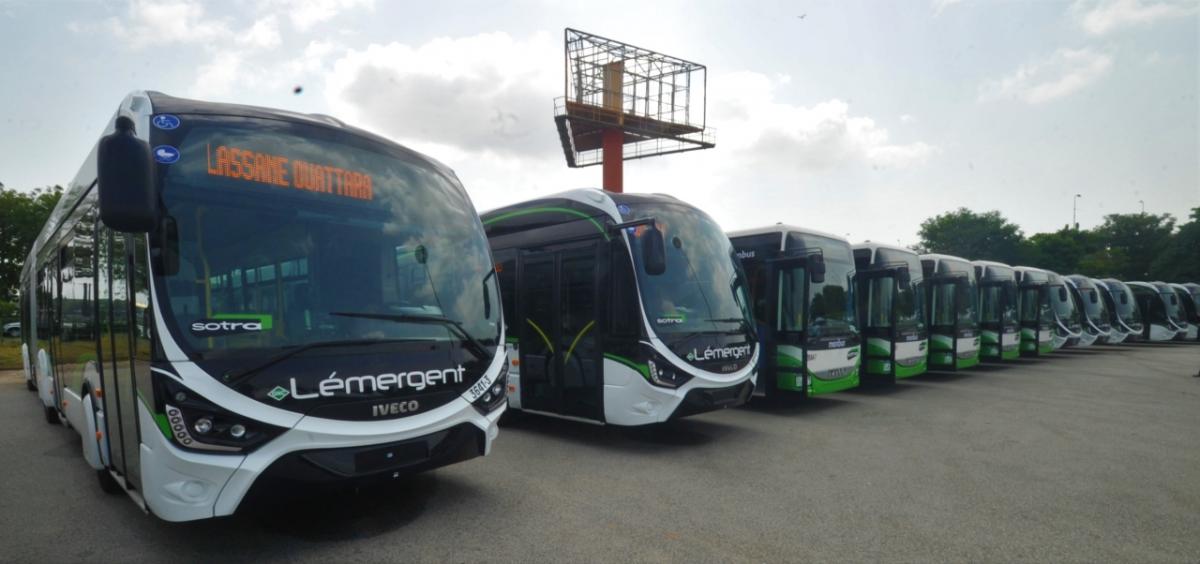Iveco Bus to Deliver 250 More Buses, Including Natural Gas Power Solutions, to the Ivory Coast
Following the order of 450 buses in January 2018, the Government of the Ivory Coast and the Abidjan Transport Company SOTRA confirm a new investment with CNH Industrial’s global bus brand for a total running fleet of more than 750 city buses.
Abidjan, the economic capital and largest city in the Ivory Coast, continues to invest in strengthening its public transit system, expanding its fleet of buses. The city’s latest order from IVECO BUS, the global bus brand of CNH Industrial (NYSE: CNHI / MI: CNHI) and leader in natural gas buses, consists of 200 Crossway Low Entry (LE) and 50 Crealis Natural Power (NP) 18-meter buses. This delivery will provide Abidjan with the latest Compressed Natural Gas (CNG) and Bus Rapid Transit (BRT) technologies. BRT is a bus-based public transport system designed to improve capacity and reliability.
The signature for this new delivery took place on July 5 in the presence of Amadou Kone, the Ivory Coast’s Minister of Transport, Meité Bouaké, Director of SOTRA, and Sylvain Blaise, Head of the Global Bus Division at CNH Industrial. The Ivory Coast is the first country on the African continent to order high-value CNG buses. This choice utilizes vehicles with low environmental impact, which are also the most ideal and viable solution for the country, given its substantial reserves of natural gas both on land and off-shore.
With this latest agreement, the city’s running IVECO BUS fleet will amount to more than 750 city buses, 100 of which are BRT running on CNG. Further to its pioneering leadership in natural gas, IVECO BUS is also a leader in BRT solutions. As a result, Abidjan has invested in transforming the structure of its urban public transit system to high-capacity BRT.
Natural gas vehicles are an effective answer to environmental concerns and represent a real, mature and efficient solution for mass passenger transport. CNG vehicles offer major benefits in terms of their low running costs and a reduction in pollution and noise: fine particle emissions are reduced to nearly zero, nitrogen oxide emissions by more than one third and noise level is reduced by half.



